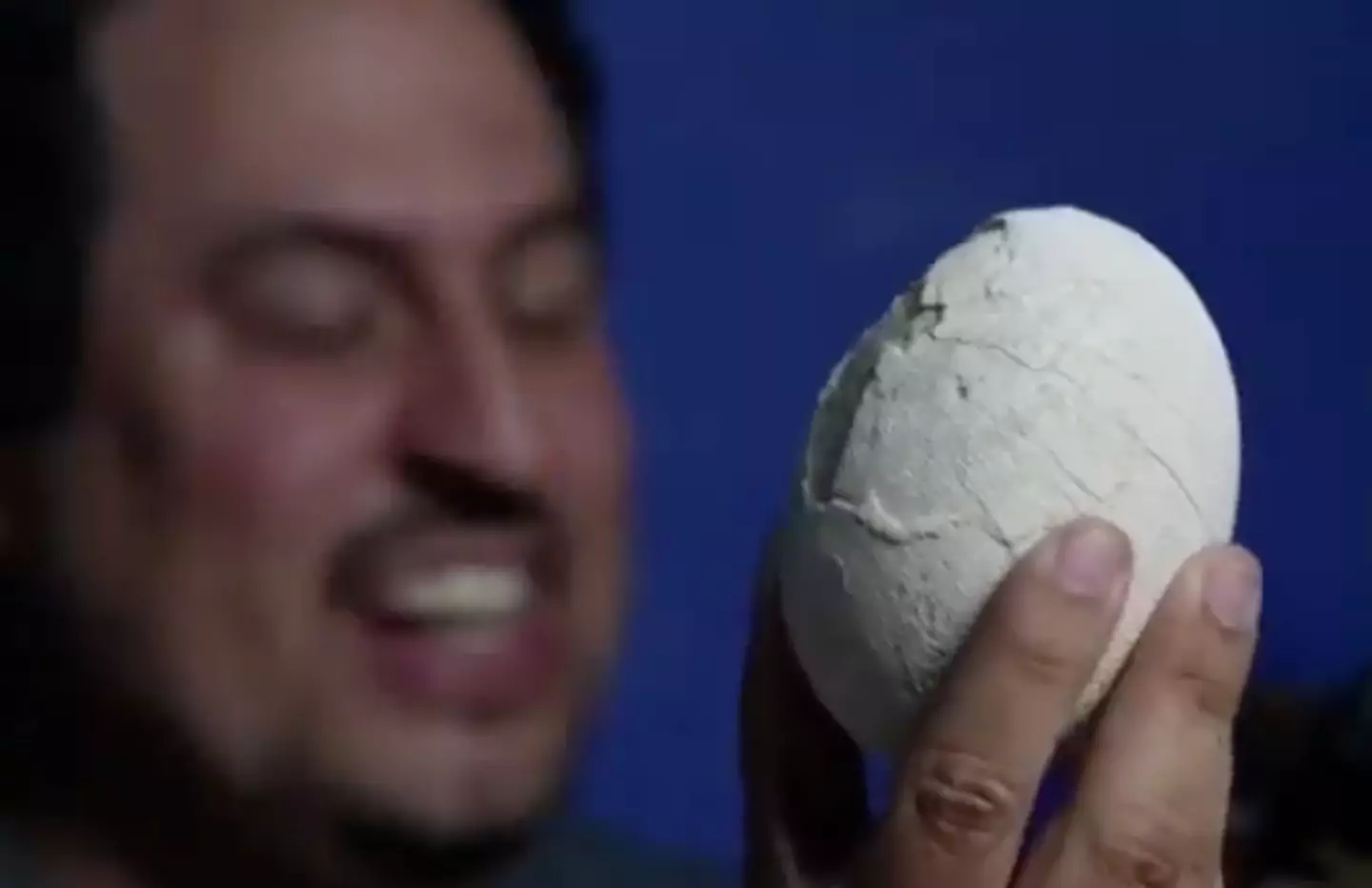Researchers have unearthed a remarkable find with the discovery of a perfectly preserved dinosaur egg, sparking excitement across the internet.
This ancient egg, estimated to be over 70 million years old, was discovered by a team of astonished Argentinian scientists on October 7.
The remarkably intact prehistoric artifact was located near the Rio Negro in General Roca, Patagonia. The team from Argentina’s Museum of Natural Sciences couldn’t contain their excitement as they revealed the significant discovery during a livestream event.
Amidst cheers as the egg was held up for viewing, one of the scientists remarked: “It was so well preserved that it looked recent.”
“We’ve never seen anything like it, we’ve never seen an egg so well preserved.”
Though some markings on the oval relic revealed its ancient origins, the find is considered a historic rarity due to its exceptional condition.

This discovery occurred during a scientific mission known as Cretaceous Expedition I, led by Argentina’s National Council for Scientific and Technical Research.
People worldwide have shared in the excitement, expressing their enthusiasm for this extraordinary find.
Taking to X, formerly Twitter, one user exclaimed: “DINO NEWS FLASH! whole dinosaur egg found. We’re one step closer to getting an actual real Jurassic Park?!”
Another suggested renaming the Rio Negro, near where the egg was found, to ‘Jurassic Park River’ in tribute to Steven Spielberg’s iconic film.
The egg is thought to belong to a member of the carnivorous bonapartenykus genus, a group of long-legged, two-legged dinosaurs that inhabited the Rio Negro Province during the late Cretaceous period.
Additional discoveries of reptile and ancient mammal remains near the egg support the idea that the area might have been a nesting site in prehistoric times.

In an interview with National Geographic, researcher Gonzalo Muñoz shared: “It was a complete and utter surprise. It’s not common to find the egg of a possible carnivorous dinosaur, much less in that state.”
“The happiness was spectacular for the team.”
Muñoz explained that such discoveries are rare because eggs of carnivorous dinosaurs are particularly fragile and prone to destruction.
“They’re much more delicate eggs,” he stated, “with thinner shells that are more likely to be destroyed.”
As for the possibility of a real-life Jurassic Park, the scientists intend to conduct scans on the egg to determine if it contains any embryonic material.
Muñoz added: “An embryo is a very delicate animal, and its preservation is more complex. Although the egg was preserved complete, we don’t know if the embryo was there and died, or if it was an egg that didn’t have an embryo.”
Should embryonic material be discovered, it would mark a significant paleontological milestone, offering insights into the evolution of carnivorous dinosaurs.
Following analysis, the egg is slated to be exhibited in a local museum in Patagonia.

